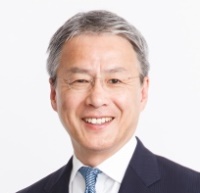
by Noriyuki Morimoto
Every business enterprise has, to varying degrees, specialized technical elements specific to its business, as well as practical knowledge cultivated through business experience and social relationships with customers, all of which form the basis of the enterprise’s competitive advantage.
On the one hand, such a historically formed foundation unique to a company can be a source of added value, through the formation of a unique culture and environment that can only thrive within the organization. On the other hand, it is undeniable that it can also result in thinking and behavior that run against social norms.
Therefore, it is necessary to bring in external evaluation from the perspective of a layperson, or rather a regular person with common sense. That is the function of outside directors. Being an external layperson, outside directors cannot truly understand the living dynamics inside a company. However, it is precisely because they are outsiders that they are able to make unbiased judgments as neutral, common-sense people, untainted by the unique culture of the company.
The same principle applies when a neutral third-party committee is formed to investigate a corporate scandal or other incidents. This is because scandals do not arise from professional or technical defects, but from governance deficiencies resulting from the corporate culture.
It is natural that the execution of business operations of a company is entrusted to the management, who are the experts. Rather, the definition of management is to be entrusted with the sole responsibility of business execution. In contrast to the experts in management, an amateur in management, being an amateur, can serve as a check and balance from a common-sense standpoint. This is what I mean by governance by amateurs.
Then, as a premise for governance by amateurs, there must be respect for the insights of experts. A layman should not be able to make any contribution, and in fact should not be expected to make a contribution, in the form of their opinion or judgment on the substantive aspects of the proposals raised by the executive management team.
[Category /Corporate Governance]

Chief Executive Officer, HC Asset Management Co.,Ltd. Noriyuki Morimoto founded HC Asset Management in November 2002. As a pioneer investment consultant in Japan, he established the investment consulting business of Watson Wyatt K.K. (now Willis Towers Watson) in 1990.

